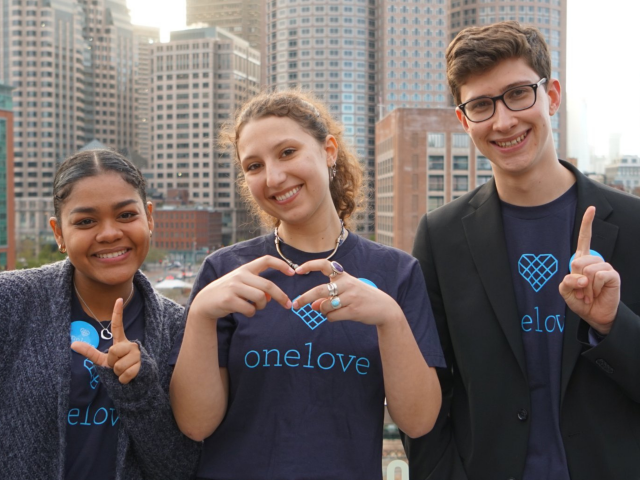Have you ever questioned yourself after an argument with someone? Maybe they make you second-guess your memory of something that happened or they downplay your feelings, causing you to question if you’re overreacting. They turn the story around to make it seem like you are at fault, deflecting attention and blame away from them to make you feel guilty. This type of emotional manipulation is called gaslighting.
Gaslighting is a form of emotional abuse where a person makes you doubt yourself or question your account of an incident. Gaslighting can come from a romantic partner, a boss, a friend, or anyone else. It is done to gain power over you and avoid responsibility for the abuse that is being inflicted. Gaslighting is incredibly harmful because it makes you question your own sanity, can lead to anxiety, depression and can even trigger nervous breakdowns. Here are a few signs to help you tell if you or someone you know is experiencing this form of emotional abuse.
1. You question if your feelings are justified.
After an argument with your partner you wonder if you are the one being too sensitive or dramatic. Your partner dismisses your feelings, making you feel like they aren’t warranted or like you can’t keep your emotions in check. They might tell you that “you’re just overreacting” or to “stop making everything such a big deal.”

2. You second-guess your recollection of past events.
You’re told by your partner that it never happened or that you are misremembering the details. For some reason, your partner’s interpretation of an event does not match yours and it’s making you question just how reliable your own memory is or how justified your reaction is. They might tell you that “You have a selective memory” or claim that you’re “changing the story” and “making things up” to your own benefit.

3. You find yourself apologizing.
You start apologizing unnecessarily to your partner or other people even if you did nothing wrong. After any argument or confrontation you actually start believing that you might be at fault.

4. You make excuses for your partner.
Your friends and family aren’t the biggest fans of your partner and so you feel the need to defend them. You start keeping certain details about your relationship to yourself and hiding things about your partner from the important people in your life. You know your partner’s behavior would be seen as unacceptable so you’re ashamed to expose the dynamics of your relationship.

5. You think there’s something wrong with you.
You wonder if you’re losing it or going crazy. When arguing with your partner, they’ll tell you that “It’s all in your head”. You don’t feel good enough or you can’t seem to get things right with your partner. You think it’s your fault and that if you tried harder or did better, the state of your relationship would improve.

6. You trust the judgment of others over your own.
Your partner has made you doubt what is or isn’t normal in a relationship. They’ll say things like, “It’s normal to fight like we do” or “You don’t know what makes a good relationship.” So when given a choice, you doubt your own judgment and think that others have better logic than you do. You don’t trust yourself and have trouble making your own decisions.

7. You think something might be off.
You’re not as happy and confident as you used to be. Your gut is telling you there is something wrong with your relationship but you might be afraid to admit it or speak up.
If you or someone you know is experiencing any of these behaviors, don’t hesitate to take action. Gaslighting is a form of emotional abuse and can be very devastating for anyone who experiences this type of manipulation. You can read more about emotional abuse on our blog or find real-time help in our resources.
For more resources on gaslighting, please visit the National Domestic Violence Hotline’s “What Is Gaslighting?”
Start a conversation
The best way to help a friend, family or loved one is to talk about it. Use our conversation starters and this article to get the people in your life talking.
Browse by Category

How to Have Healthy Holiday Conversations with Family (and Prep Your Partner)
The holidays are a time for family, good food, and—let's be real—sometimes intense conversations. Whether it's politics, lifestyle choices, or…
3.2 Million Strong: How One Love is Saving Lives Through Education
Please share this blog with your network across social media,…
Finding Strength in Our Stories: Domestic Violence Awareness Month
⚠️ Trigger Warning: This blog includes content and language related…
Understanding Domestic Violence Awareness Month (DVAM)
October is almost here, and that means it’s time to…
4 Students Share How They Helped a Friend in an Unhealthy Relationship
Watching a friend struggle in an unhealthy or abusive relationship…















